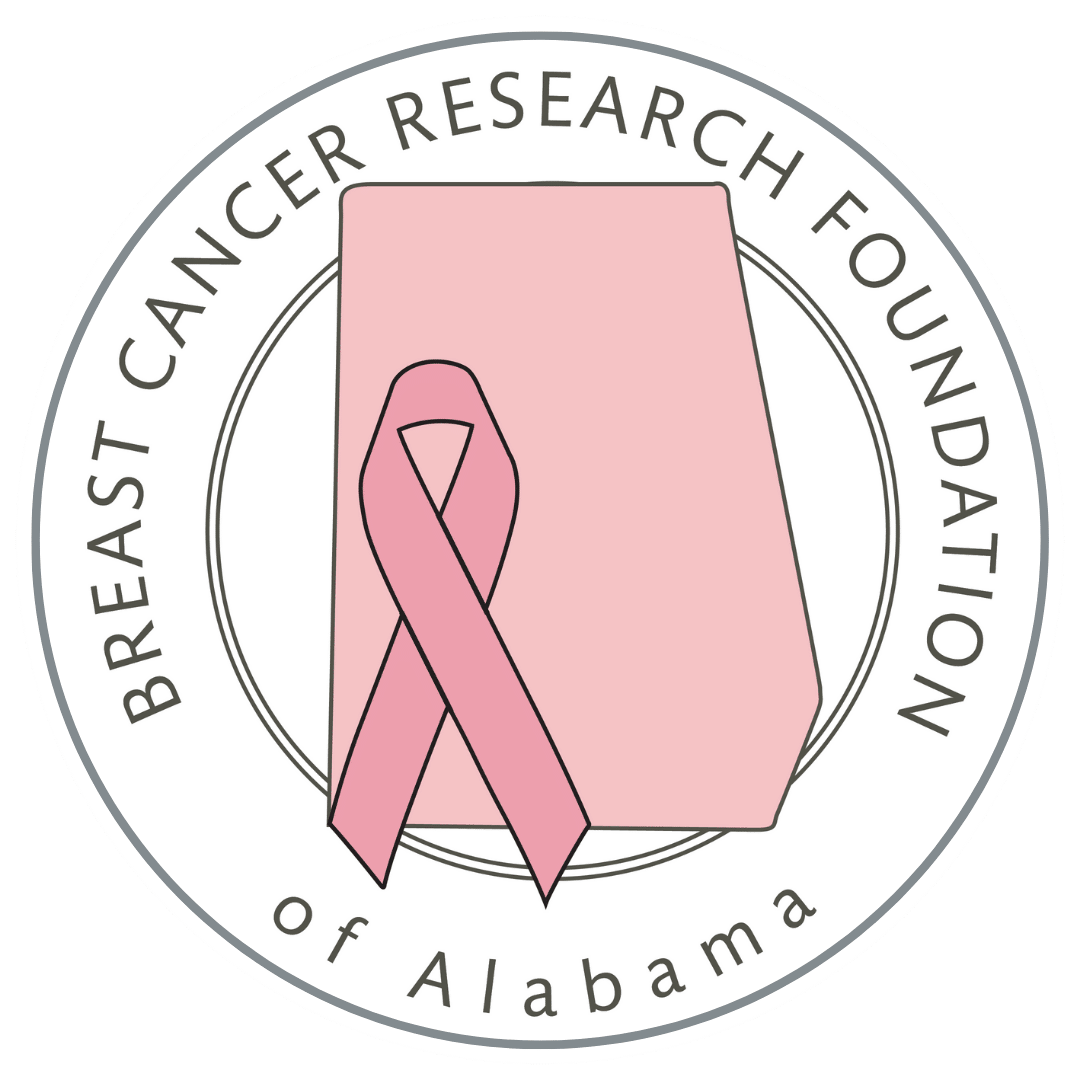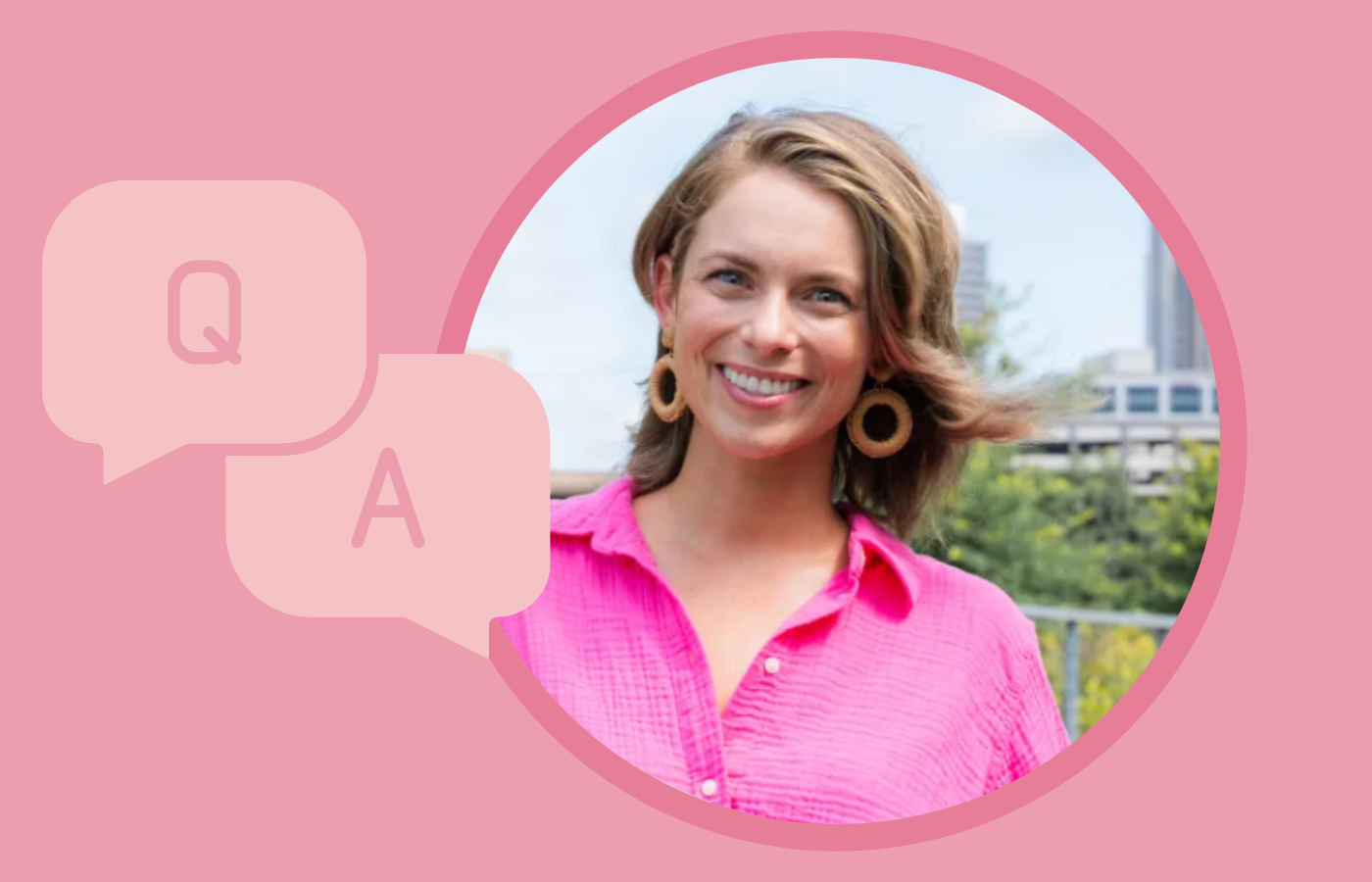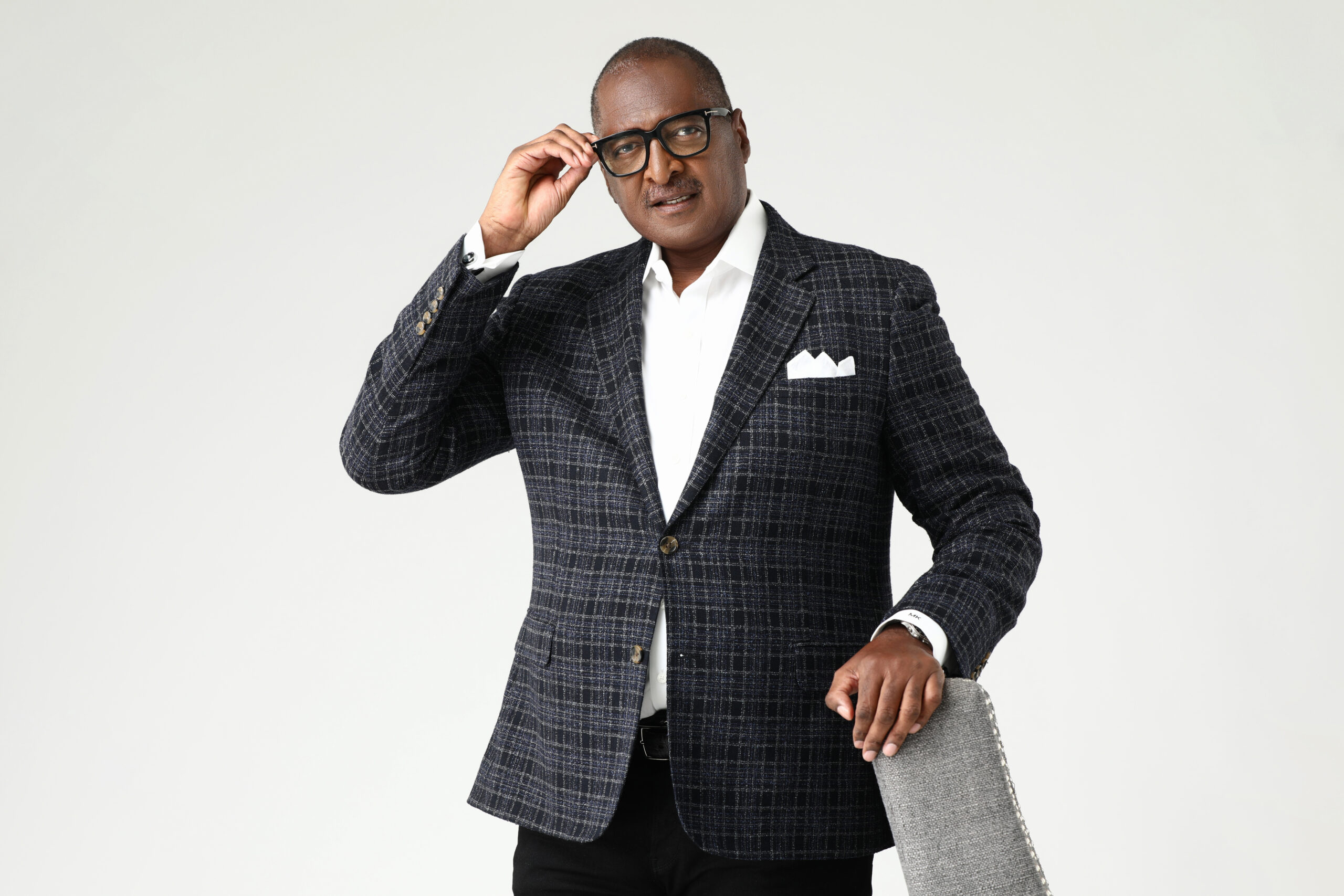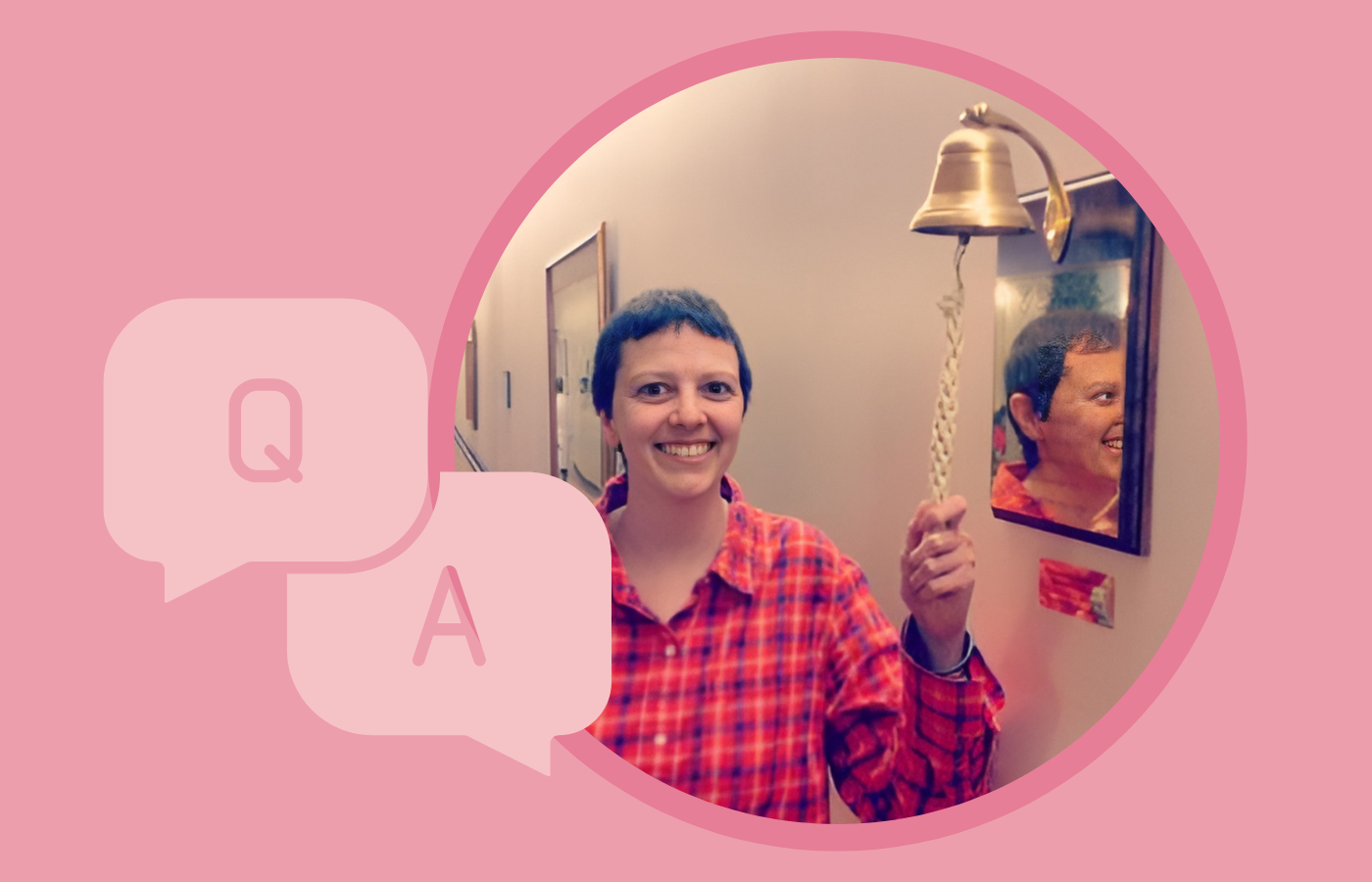Audra Childs is a 5-year breast cancer survivor, and her breast cancer journey serves as a poignant reminder for all women, particularly those in their early 20s, to prioritize their health. At the age of 26, an age when the specter of breast cancer may seem distant, Audra discovered a marble-like lump in her left breast. This unexpected finding compelled her to become her own biggest advocate in navigating the complexities of diagnosis and treatment.
Read on as Audra shares her impactful journey, and her unwavering commitment to bringing awareness to early breast cancer diagnoses in younger women.
BCRFA: Can you please share the details of when and how you received your breast cancer diagnosis? 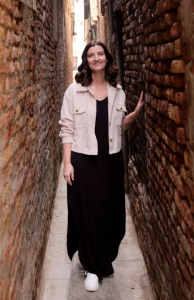
Audra Chiles: I was diagnosed when I was 26, I don’t have any family history, so I never expected anything. I had gone to my OBGYN, because I felt like a marble that I could roll around, in the 12 o’clock position on my left breast and it had been there for a while and I would notice it, like a hard lump.
BCRFA: How long had the lump been present before you discussed it with your OBGYN?
Audra Chiles: I talked about it at one appointment, and she (OBGYN) had told me to come back if I noticed that it was growing. It was a slow-growing cancer thankfully but also there was no way for me to detect that it was growing. I did not notice it growing so I went back a year later, and I mentioned it again; this is where my biggest takeaway is that we have to advocate for ourselves and the medical care we need. Finally, at that appointment, she ordered an ultrasound and mammogram, and she sent me to get a biopsy with a breast surgeon.
BCRFA: Do you think if you had not brought it up again it wouldn’t have been something your OBGYN would have brought up again a year later to talk to you about?
Audra Chiles: I don’t think she would have because I went back and in all the provider notes I had access to there were no mentions that I had said anything the first time.
BCRFA: Do you think your age played a role in ultimately receiving your diagnosis?
Audra Chiles: Yes, I do think so because my age didn’t fit the standard mold that providers or insurance companies would expect to see a cancer diagnosis, especially since routine mammograms don’t typically start until 40. After I was diagnosed OBGYN called me and told me, “I’m so sorry you were diagnosed” and she (OBGYN) referenced that I was a unicorn.
BCRFA: After you visited the breast surgeon for your biopsy, what happened next?
Audra Chiles: I got the biopsy done and the nurse called me a few days later and told me “You have cancer.” I said, “Alright, well how bad is it; on the scale of I’ll be fine vs I’m going to die tomorrow?” The nurse could not give me any details. The nurse could not give me any details on the type of cancer or the staging, so, I had to wait until I could get a breast MRI and go to an appointment with that breast surgeon to find out more information, which took a couple of days. Those were some of the hardest couple of days, not knowing how severe it was. Thankfully it was only stage 2 breast cancer. The cancer had not spread to any lymph nodes. The doctors immediately scheduled me for a mastectomy while I considered all my options.
BCRFA: How did you feel between receiving the news from the nurse and your appointment with the breast surgeon?
Audra Chiles: I felt like my world was ending. I felt like I was already grieving my whole life; like I was not going to live much longer.
BCRFA: Were you married during this time?
Audra Chiles: Yes, we had been married for a year and a half. My husband was my biggest supporter and we put those vows of ‘in sickness and in health’ to the test real quick. I took a week off of work to process and we just happened to have a trip the next week to go to Scotland with his family, so we still went and it was a nice getaway to process all that was waiting for me back home
BCRFA: Did you inform your family during this time or after your appointment?
Audra Chiles: I told them that I didn’t have any details, but they told me (the nurse) that I have cancer. I was just an emotional wreck because I didn’t know what was going on. I had a lot of ‘Why me?’ questions. I was ready to give up but once we got more information it helped me to see a light at the end of the tunnel.
BCRFA: Before your first doctor’s visit, did you perform self-examinations?
Audra Chiles: I didn’t do formal exams just to check, I think if I had a family history, I would have but it speaks to the importance of women and young women doing that. It was more of an informal feeling around and noticing that the lump was there.
BCRFA: What was the treatment you received?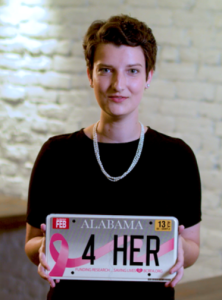
Audra Chiles: I first had a bilateral mastectomy and then once I recovered from that I went to a fertility doctor to do a part of IVF so that I could freeze some embryos, just in case after chemo my whole system wouldn’t work for having kids one day. Once we did that, I started chemo and did TC (Taxotere and Cyclophosphamide) four rounds which was about 3 months of TC. I tried to do scalp cooling where I could save my hair, but it did not work so I ended up shaving my head anyway.
BCRFA: How did you feel about your self-worth while losing your hair, going through chemo, and working?
Audra Chiles: I was able to be on short-term disability and then ultimately long-term disability, so I took a six-month break from work during all of this which was so wonderful because I couldn’t have managed a job at the same time. For me, every physical aspect of my identity as a woman was being threatened because my breasts were basically amputated and filled with silicone implants and there was a possibility with the chemo that maybe I wouldn’t be able to have kids one day, and then my hair was gone; which I have always had really long thick hair and it did grow back the same way, long and thick. But I just felt like everything that physically formed my identity as a woman was gone at least temporarily and that was really hard.
BCRFA: What’s one thing you wish you knew before starting treatment?
Audra Chiles: It was a whole learning process and there are other people who have walked through this same thing. I found that after my journey with Forge Breast Cancer Survivor Center, I volunteered with Forge Breast Cancer Survivor Center and led their young survivor support group for a while. Knowing there is a community, and you are never alone. There is always going to be someone to help guide you through it and there is light at the end of the tunnel. Because it is so easy to get lost in the magnitude of a diagnosis and the day-to-day of treatment.
BCRFA: Do you think that having support groups during treatments would have been beneficial to have that community?
Audra Chiles: Absolutely, I think that that is the best way to feel seen and understood is to talk to people who have been in your shoes, and I did have a peer mentor during my cancer treatment through Forge and I had another woman, who had a different kind of cancer, provide a lot of encouragement during my journey Finding those resources is really important to keeping your sanity through it all.
BCRFA: What was your biggest discovery or revelation after you were diagnosed?
Audra Chiles: You have to be your own biggest advocate because your health is important and doctors and insurance companies may not treat your needs with as much importance as you’d treat your own needs, so always advocate for what you want!
BCRFA: How was your journey of keeping life moving while also going through treatment?
Audra Chiles: I felt like I enjoyed being able to truly sit and reflect and not work because I feel that would have been too much, so I was able to emotionally and physically take the time to heal. I would keep things in my routine, day-to-day, that I really enjoyed. Went on walks with my dog, took up knitting to make myself hats, and spent time with my husband, he was always around and available if I needed anything.
BCRFA: What advice would you give to best support a loved one who is going through breast cancer?
Audra Chiles: Comfort in, dump out. They taught this in a Forge volunteer training, but this is the concept of if you had a bunch of concentric rings and at the center is the person who has been diagnosed and in the next ring, outside of that, is their closest person; like their spouse, and then outside of that is more distant family and close friends. The concept of identifying where you stand within the rings and comforting those in an inner ring and dumping your own feelings out to someone in an outer ring, so for example, my husband wouldn’t be dumping all his cancer burdens on me, the person going through it physically. I think that it is important for other people to find different avenues to process it outside of the diagnosed person
BCRFA: How long was your treatment?
Audra Chiles: It was probably six months until I recovered from my mastectomy and chemo then I started hormone therapy and I have to be on that for ten years. I did two and three-quarters of a year and then paused to have my baby and recently restarted it so I have to do ten in total.
BCRFA: Once you were cancer-free, did you go back to the doctor every three months or every six months? What was the timeline like?
Audra Chiles: They wanted to see me every six months or so but because of some of my treatments, like my surgeon was at Brookwood and my medical oncologist was at UAB; I would go see each of them once a year, but it was staggered so I would see one of them every six months. That is still kind of true because I usually get a mammogram because I had a nipple-sparing mastectomy. Since there is technically still some breast tissue, I still get a mammogram.
BCRFA: How did you feel when they said there was no more cancer? 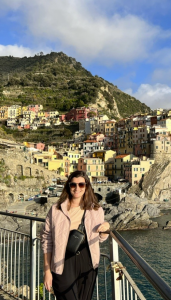
Audra Chiles: I never formally got that feedback from my doctor, like hey you are cancer-free, or you are in remission. So, I had to go ask for clarity, like hey would you consider me cancer-free; but once all the treatment was done it was like cautiously a weight lifted off just because like who’s to say it’s not going to come right back so you live in fear that it might come back but the further away you are from your diagnoses the more I’ve started to be able to relax.
BCRFA: What advice would you give to younger women about early detection and advocating for themselves?
Audra Chiles: Do your self-exams and if you are not sure how to do them ask your OB and be your own advocate. We are in charge of our own health, and we need to be our own advocate for whatever we think that we need. Even if you feel like you are being a little paranoid, it is still so important to get answers even just for your peace of mind.
BCRFA: What advice would you offer to women who have recently received a breast cancer diagnosis?
Audra Chiles: I would say, first to get in community with other survivors; just so that you know that you are not alone and just take the information that you have at the time and not let your thoughts get away from you., like worst case scenario and that is easier said than done, of course, but if you just deal with the facts that you have at the moment you can help keep worry at bay.
That would have been true for me because if I had not been like, ‘OMG, I’m dying’ then I would have gotten more information and I would have been like ‘It’s going to be manageable, you will have a full life after this’, and I think it would have saved me some stress.
BCRFA: How are you today?
Audra Chiles: Today I’m great! It was a little sad starting tamoxifen (hormone therapy medication) but I have to remind myself that I’m doing it so I can be here for my sweet baby in the long run and pausing the tamoxifen served the purpose that we set out to accomplish which was to have a sweet baby!
Thank you, Audra!
